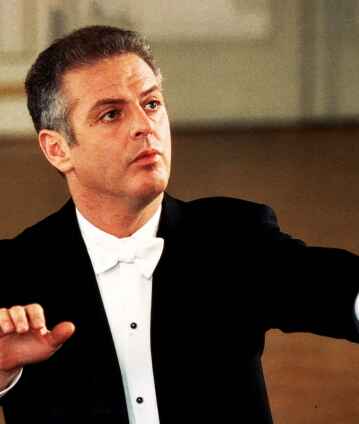Daniel Barenboim plays Mozart’s Piano Concertos Nos. 20 to 27

Daniel Barenboim is one of the rare pianists with a keen sense for Mozart’s tone – that seemingly light-footed idiom that is in fact immeasurably multi-faceted and full of drama. In the 1980s, Barenboim recorded the composer’s last eight piano concertos with the Berliner Philharmoniker in the Siemens Villa in Berlin: performances that beautifully document this decades-long partnership.
The Berliner Philharmoniker’s collaboration with Daniel Barenboim, who made his debut with the orchestra in 1964 as a pianist and five years later as a conductor, has also proven to be extraordinarily productive in terms of discography: their joint recording projects include operas by Mozart and Wagner, Beethoven’s piano concertos, the symphonies of Schubert and Bruckner, and central works by Liszt and Berlioz.
A constant in the collaboration of the orchestra with Barenboim, who was appointed its first honorary conductor in 2019, have been Mozart’s piano concertos. “I think Mozart was the only composer who had the perfect combination between seriousness, talent, genius – light-heartedness and facility,” as Barenboim once said of the composer. Although the musician was the soloist in the C major Concerto K. 503 in 1968 under the direction of Seiji Ozawa, he has since performed these works as conductor and pianist in tandem. Mozart’s piano concertos were performed at the Philharmonie and at the Easter Festival in Salzburg, during the orchestra’s legendary first tour to Israel in 1990, at the Mozartfest Berlin and in Waldbühne, New Year’s Eve and European concerts. A complete recording of the repertoire in this formation was only logical.
In addition to these sound recordings, the present audiovisual recording of the last eight piano concertos of Mozart is of particular significance. The location of the performances – the concert hall of the Siemens-Villa in the Lankwitz district of Berlin which was built at the beginning of the 20th century – allowed for an unusually intimate music making. The grand piano stood here in the middle of the relatively small orchestra, so Barenboim always had the orchestra in view.
This group of works is considered to be the most beautiful and perfect that Mozart ever wrote, with its perfect balance between soloist and orchestra, between pianistic virtuosity and symphonic instrumental movement, and between their musical-dramatic vitality and chamber music-like interaction. These concertos, which were written in Vienna between 1785 and 1791, include the only two of Mozart’s contributions to the genre in minor keys, the famous Coronation Concerto and the work in B flat major completed in the year of the composer’s death. In it, sadness and the joyful expectation of spring are poignantly combined: Mozart later adapted the theme of the final movement into his song “Komm lieber Mai und mache die Bäume wieder grün” (Come, dear May, and make the trees green again). Mozart himself was one of the foremost pianists of his time and composed almost all of his concerts for his own hands. This is one of the reasons why these works make it possible to enter into a dialogue with the composer, as Daniel Barenboim succeeded in doing in these performances recorded between 1986 and 1989.
© 1986 EuroArts Music International
Artists
Our recommendations
- 2010 Europakonzert from Oxford with Daniel Barenboim and Alisa Weilerstein
- Daniel Barenboim conducts Fauré and Franck
- 2001 New Year’s Eve Concert with Daniel Barenboim and dance music
- Daniel Barenboim conducts the 1997 Europakonzert from Versailles
- Daniel Barenboim and Yefim Bronfman perform Brahms’s Piano Concerto No. 1
- 2018 New Year’s Eve Concert with Daniel Barenboim